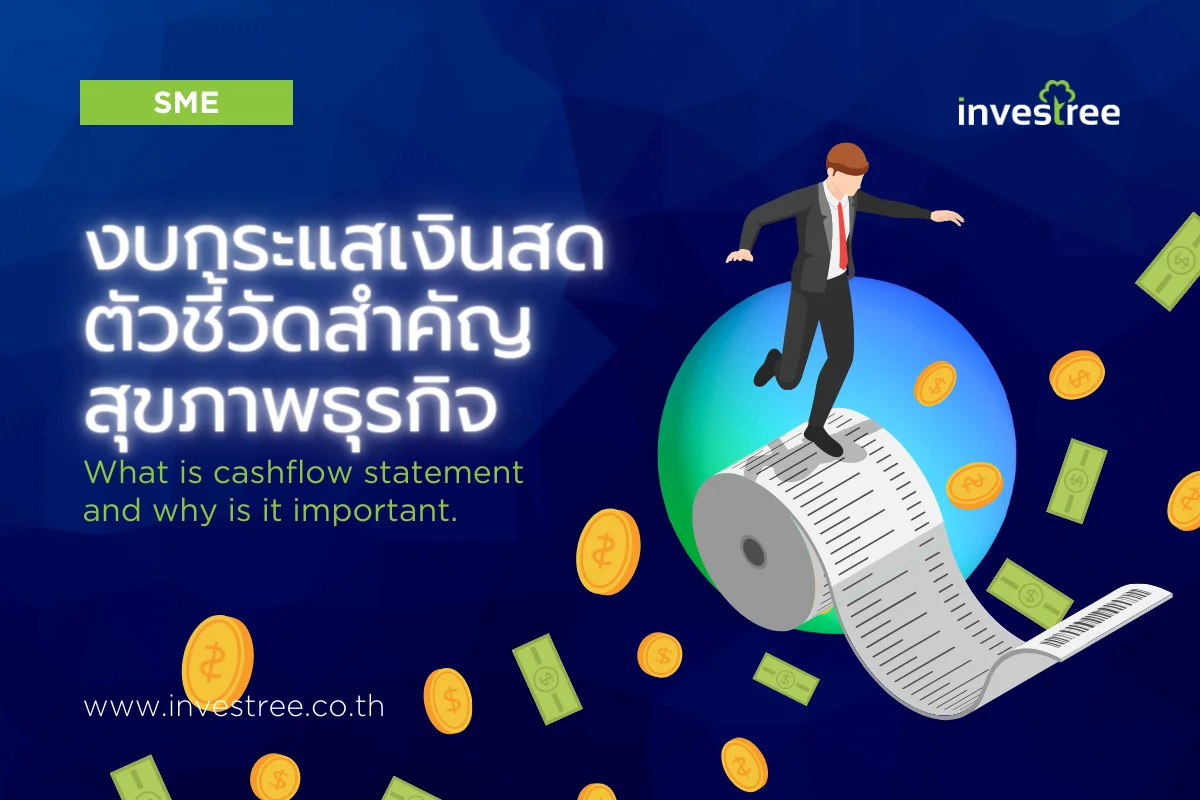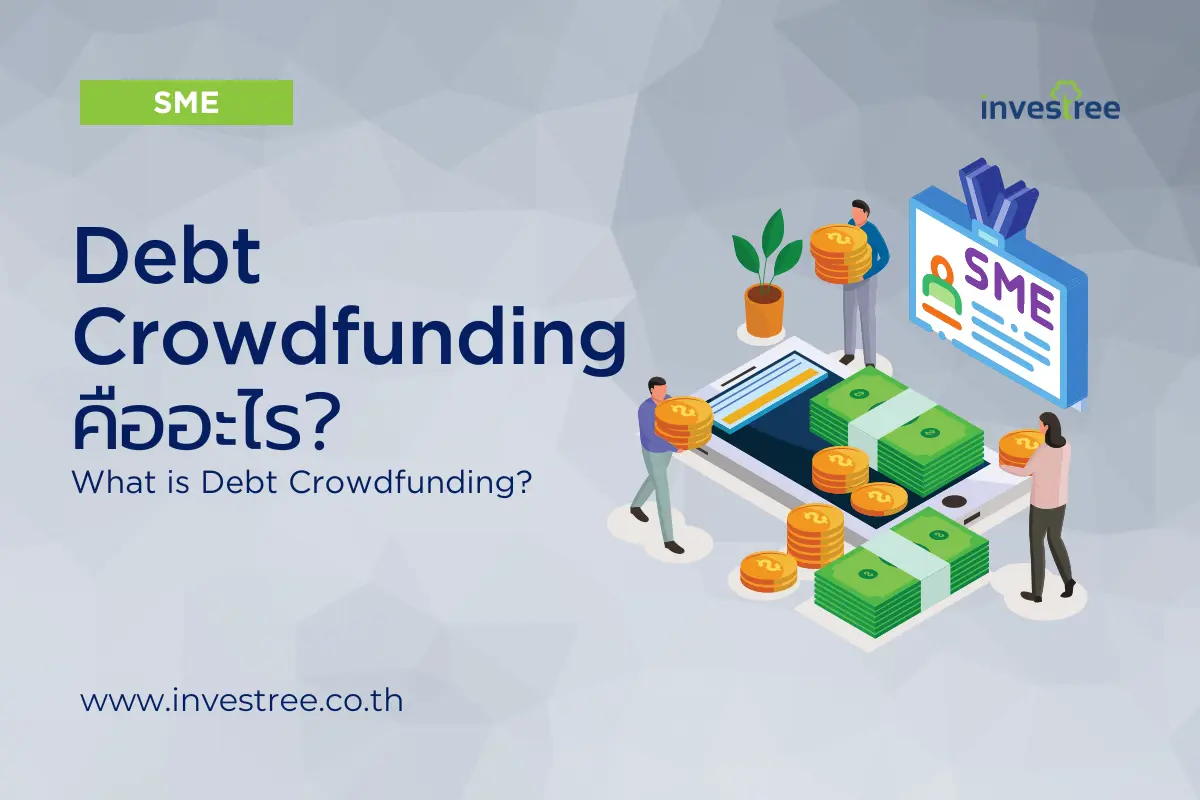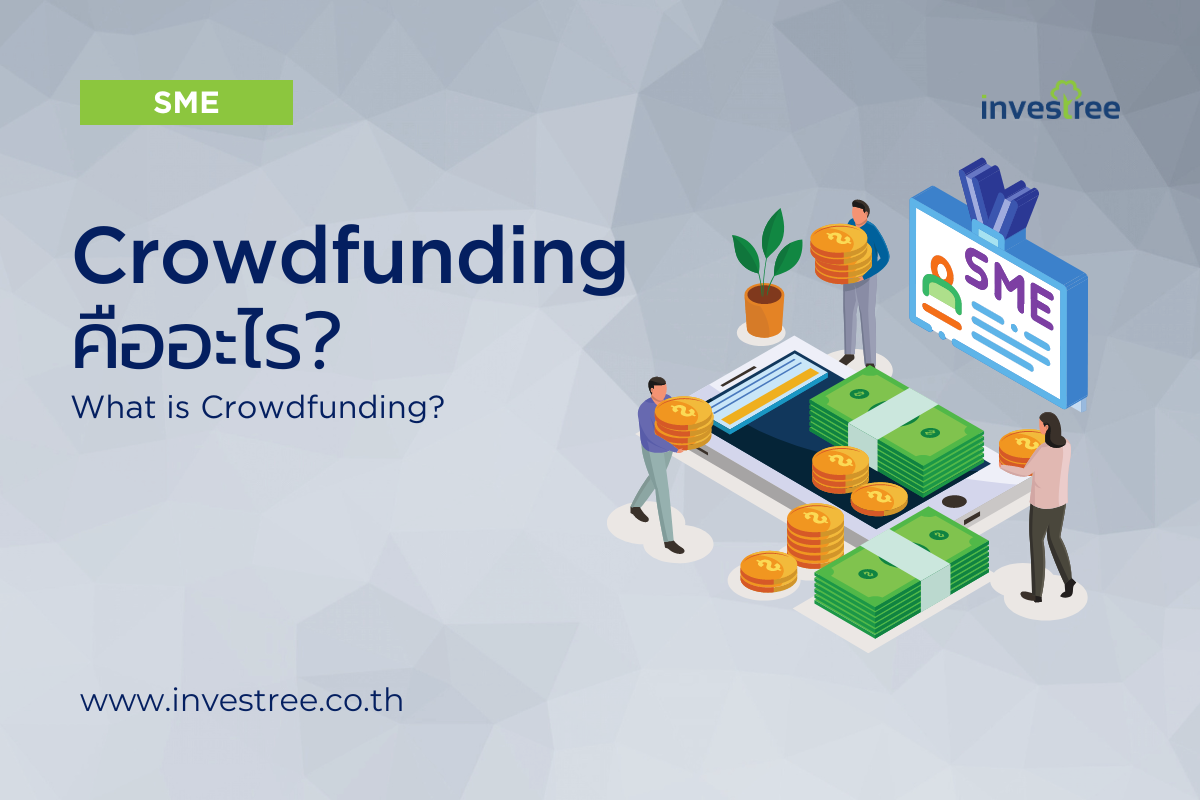What type of financing are available for SME business?
Here are four financing options that are available to small and medium-sized enterprises (SME):
Crowdfunding involves raising funds from a group of people, typically through a crowdfunding platform that is approved by Thailand’s Securities and Exchange Commission (SEC). The two common types of crowdfunding are equity crowdfunding (where investors invest in equity of the offering company in exchange for their investment) and debt crowdfunding (where investors invest in short-term notes or bills of exchange issued by SMEs with high-yield interest rates). Crowdfunding in Thailand has gained popularity in recent years, from less than 200 million Thai Baht raised in 2020 to almost four billion Thai Baht raised in 2022.
The potential benefits of crowdfunding are:
-
Fast and convenient way for businesses to raise capital, as the application process is typically simpler and quicker than traditional bank loans.
-
No need for collateral in many cases. For businesses that do not qualify for traditional bank loans due to lack of collateral or lack of the adequate number of years in business, crowdfunding may be the next best thing.
-
Raising money from many individuals allows businesses to build a community of supporters who are invested in their success.
The only serious drawback for crowdfunding is that there is no guarantee that a crowdfunding campaign will be successful which means SME will not be able to get any funding from the campaign.
Supply chain financing is when financing is provided to the SME based on the value of its outstanding invoices from its larger customers. This allows the SME to receive payment for its goods or services faster, which can improve its cashflow and help it meet its financial obligations.
The potential benefits of supply chain financing are:
-
Supply chain financing may be available to SMEs that may not qualify for traditional forms of financing, such as traditional bank loans.
-
By receiving payment for its invoices faster, an SME can improve its cash flow and better manage its financial obligations.
-
By opting in a supply chain financing program, SME may be able to strengthen its relationships with its larger customers, as it is able to offer them more favorable payment terms.
One potential disadvantage of supply chain financing is that it can be expensive, as the business must pay a fee to the financial institution or lender for the service. This fee can be a significant burden for SMEs that are already operating on tight margins.
Bank loans are the most traditional form of financing from banks to help business fund its operations. SME loans are usually secured loans meaning that collateral is required as securities for such loans. Loan terms and conditions are dependent on the creditworthiness of the business and the lender's policies.
The potential benefits of bank loans are:
-
Bank loans can provide a larger amount of financing with lower interest rates than some other options, such as crowdfunding, which can be helpful for businesses with larger capital needs.
-
Repayment period is typically longer than some other options, such as supply chain financing, which can make the monthly payments more manageable.
The cons of bank loan are:
-
SME may have difficulty qualifying for a bank loan, especially if they have a limited business history, credit history or lack of collateral.
-
Application process can be lengthy and require a great deal of preparation, which can be time-consuming and burdensome for a busy business owner.
-
If a business is unable to repay the loan, the lender may have the right to seize collateral or take other legal action. This can be a significant risk for SME, especially those just starting out or are experiencing financial difficulties.
Factoring is a type of financing in which a business sells its invoices to a factor at a discount in exchange for cash.
The potential benefits of factoring are:
-
Relatively easy to qualify for as it is based on the creditworthiness of the business's customers rather than the creditworthiness of the business itself.
-
Factoring can provide SMEs with a quick source of cash to meet short-term financial needs, such as paying bills or funding new projects.
The cons of factoring are:
SMEs are required to transfer the rights of the invoices to the factoring company. Meaning that they will need their customer’s consent to sell such invoices. By transfering such rights the factoring companies will have legal recourse to the SME’s customers in case of non-repayment. Given this legal risk, SMEs usually are unable to get their large customers to consent to the transfer.
SME may not be comfortable with the idea of selling their invoices and giving up control over their accounts receivable.
The payor may not be comfortable in dealing with the new invoice owner as the payment flow as well as business identity needs to be changed, disrupting their normal business operations and increasing their legal risk.
When choosing the financing solution, SME must consider the following criteria carefully:
-
The financing solution should be secure and reliable, with a reputable lender or provider.
-
The cost of the financing should be carefully evaluated to ensure that it is affordable and reasonable.
-
The terms of repayment, including the repayment schedule and any prepayment penalties, should be clearly understood and considered.
-
The financing solution should be flexible enough to meet the changing needs of the business.
-
The financing solution should be able to provide the funds in a timely manner to meet the business's needs.
By considering these and other factors, SME can choose the financing solution that is best suited to their needs and circumstances.






